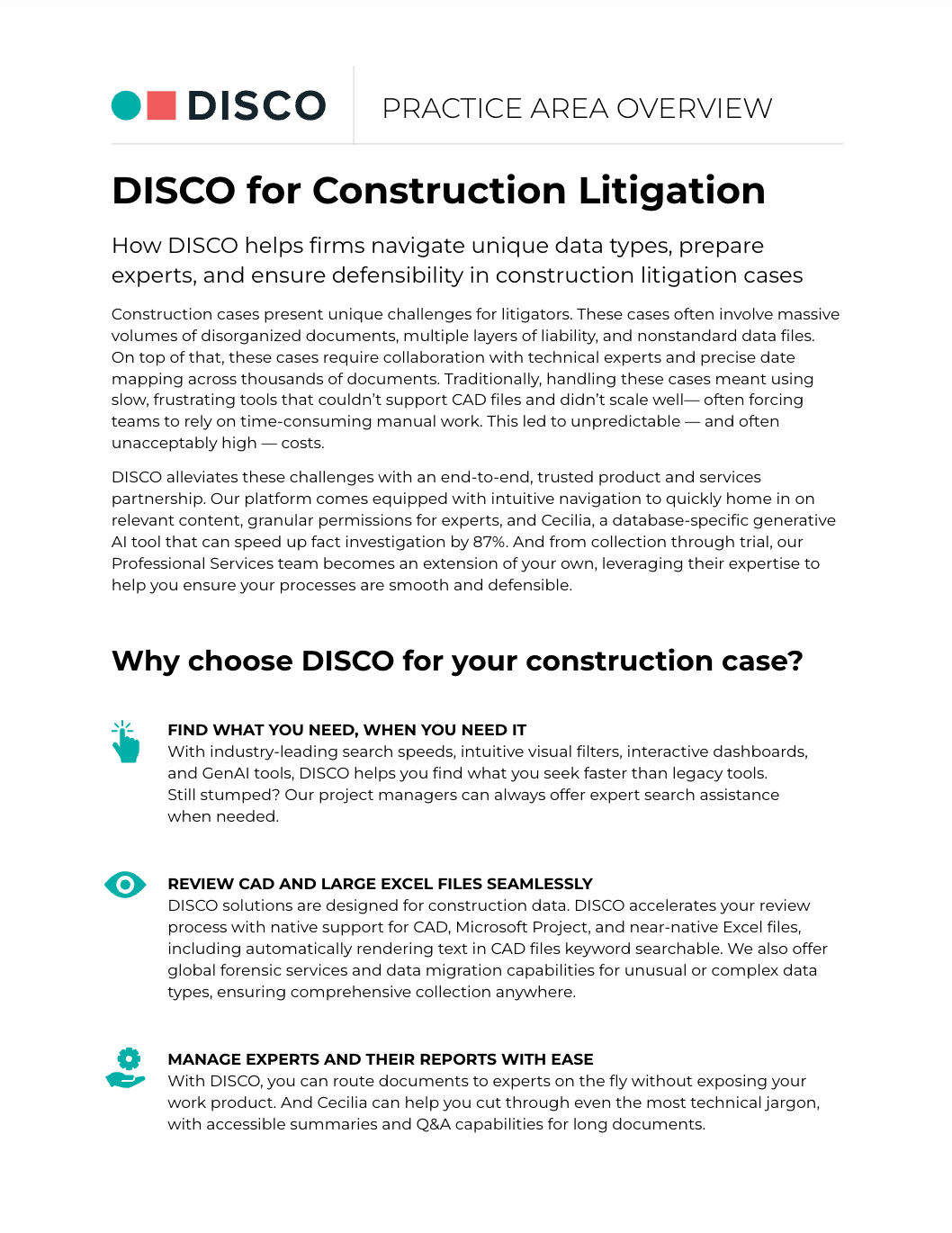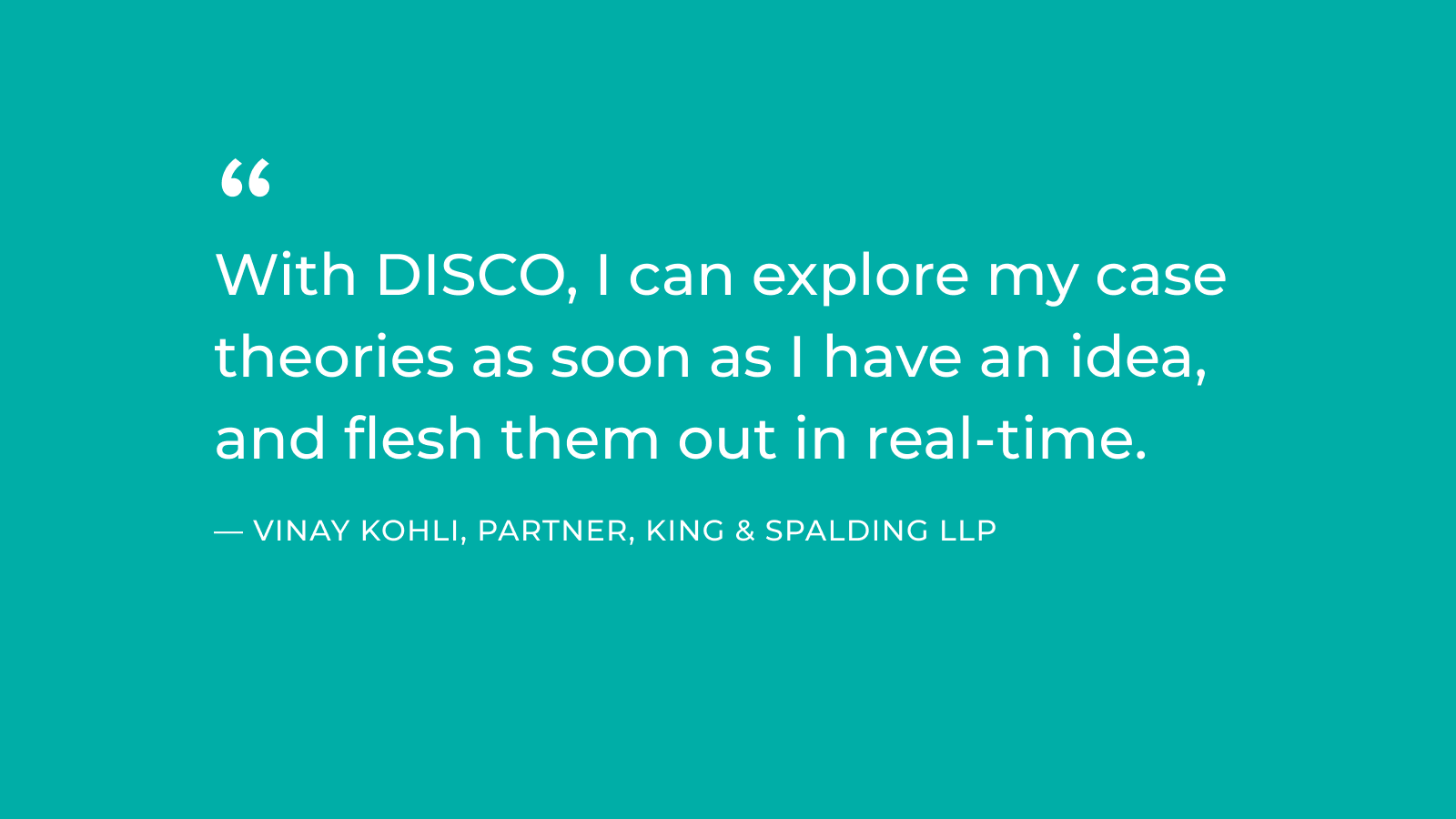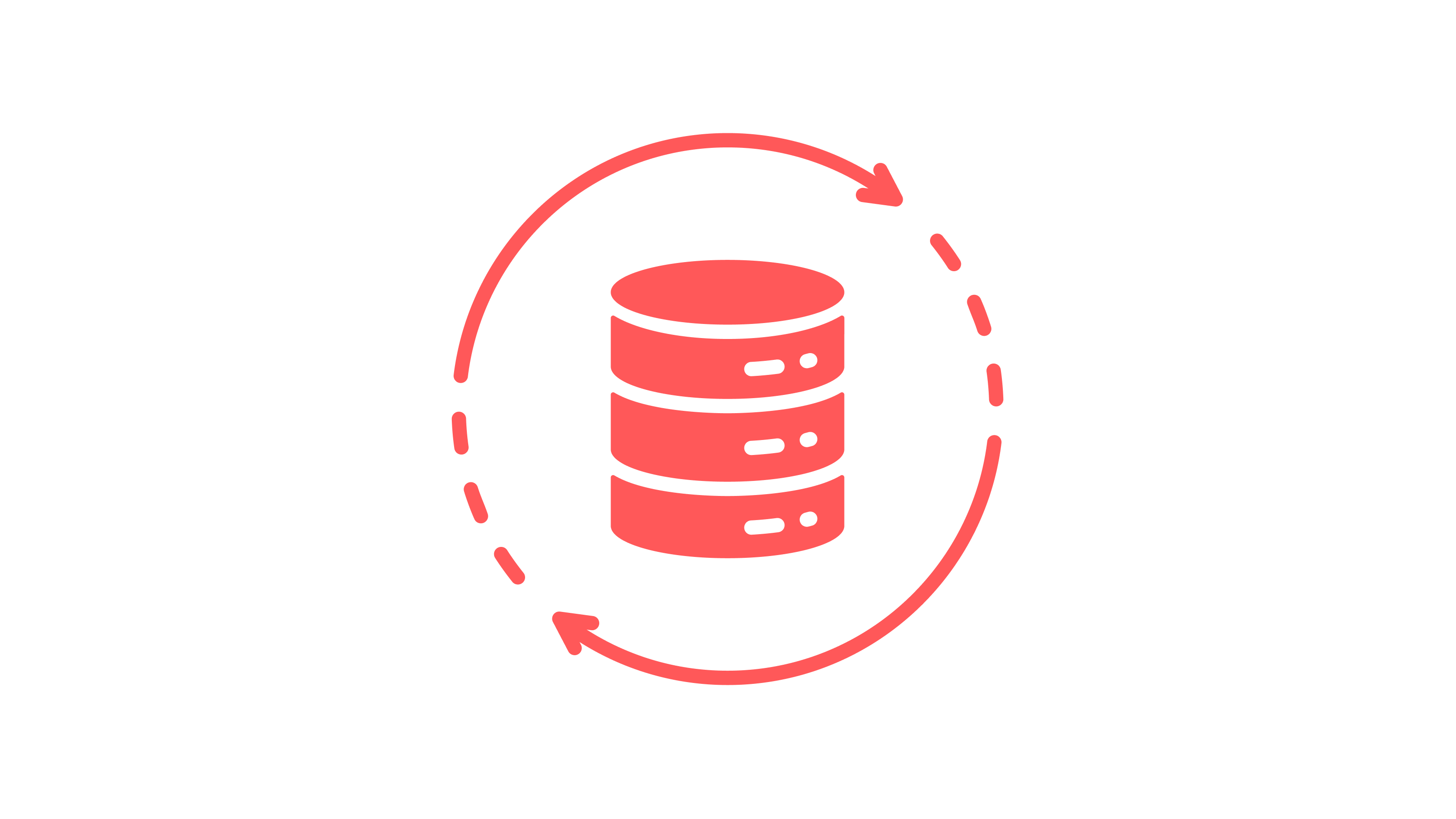
Ediscovery Services
End-to-end ediscovery services
A deep bench of world-class ediscovery project managers and consultants, available on demand to partner with you on your case needs.

Expert- and technology-driven
ediscovery services
We combine legal expertise with the best technology and a consultative approach for ediscovery — resulting in a collaborative process for efficiently handling matters of any size and complexity.
Ediscovery services you’ll love
We partner with law firms and legal teams to understand your ediscovery needs, including objectives and desired outcomes, to deliver customized support and proactive solutions.
Managed Ediscovery
DISCO's managed ediscovery service provides top-tier ediscovery management by integrating technology, services, and consulting. Our Project Managers provide expert analysis and proactive recommendations to streamline your ediscovery process. This collaborative approach ensures seamless handoffs and focuses on achieving your litigation goals with flexible support.
Ediscovery Document Review
DISCO Review provides guaranteed ediscovery document review services, ensuring on-time, on-budget project completion to alleviate stress from shifting deadlines and large document volumes. Utilizing AI-driven workflows, DISCO Review reduces document populations by 30-80%, offering predictable pricing and allowing focus on case strategy. Learn more.
Ediscovery Collections and Forensic Services
DISCO's ediscovery collections services offer defensible data collection globally through expert forensic services. DISCO-certified forensics experts design comprehensive preservation and collection strategies for various data sources, ensuring fast, defensible tactics so you can start your review quickly. Learn more.
Ediscovery Data Operations
Our full-scale data operations team offers repeatable and defensible processes to handle any ediscovery data challenge. From ensuring you can review even the most complex file types in DISCO Ediscovery to ediscovery migration management, no project is too big, small, or complicated.
Ediscovery Workflows
DISCO's professional services deliver global, round-the-clock support and expert assistance across forensics, data operations, project management, and managed review for full EDRM workflow management and support. We provide AI and strategic consulting, change management, and training, dedicated to your seamless implementation and long-term success.
Ediscovery Consulting
DISCO’s ediscovery consulting provides strategic guidance from our DISCO-certified experts. Get proactive recommendations and AI workflow implementation to optimize processes. Benefit from flexible, scalable services ensuring seamless handoffs for outcome-focused results.
Ediscovery Training
DISCO's ediscovery training options include DISCO Pathways for immersive, hands-on, in-platform courses tailored to user needs, and DISCO University, which provides supplemental self-paced learning on new features, AI adoption, and best practices, creating confident, capable users who can achieve objectives with ease.
Case Study

When the head of ediscovery at an Am Law firm needed an ediscovery service provider that could meet the evolving demands of complex litigation and high client expectations, he chose DISCO’s Professional Services – and saw a 200% increase in attorney engagement.
Read the case studyFaster ediscovery results and improved outcomes
Achieve time savings and improved outcomes for you and your clients with DISCO legal managed services. Our ediscovery experts deliver efficient workflows and personalized support. Access 24/7, at-your-fingertips expertise support through DISCO Desk.


Leverage cutting-edge ediscovery technology
Our Professional Services team utilizes DISCO's innovative ediscovery and AI technology to help you achieve unparalleled results – and that’s not all. We work closely with the DISCO product team and incorporate your feedback to continually improve our ediscovery technology, so the tools we use on your matters get better and better.
Benefit from global ediscovery expertise
With support staff available 24/7, our worldwide team provides personalized support with a regional feel throughout the entire litigation lifecycle. We’re proud to offer flexible ediscovery services that scale to meet your needs, no matter how large or complex the matter.

Why Choose DISCO
Add The Services You Need
DISCO Professional Services will assign a dedicated project manager to work with you for the duration of your case, providing invaluable access and collaboration between development, project management, and training to help solve issues quickly.

See our platforms in action with a customized demo

Learn about our on-time, on-budget managed review guarantee

Consult with our professional services team and AI experts

.jpg)








